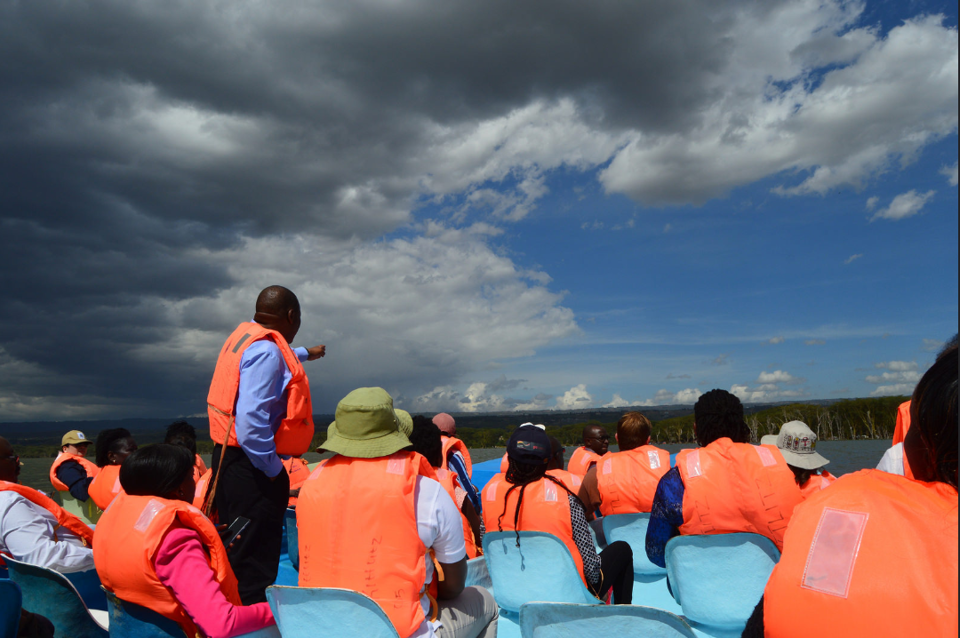Transferring Best Practices in Water Pollution Assessments (24-28 September 2018)

Photo Caption: Tour of tour Lake Naivasha led by Mbogo Kamau of Imarisha Naivasha. Photo credit- Global Partnership on Nutrient Management 2018.
In the context of environmental quality data collected, there is a recognized need for a means to integrate the most relevant body of data that remains ‘disaggregated’ into consolidated information products that can be easily accessed and used by stakeholders for decision-making, whether community, farmers and other enterprises, and regulatory authorities. The Ecosystem Health Scorecard provides a framework to facilitate this data integration into a format that can be linked to the process for reporting on the Sustainable Development Goal (SDG) targets, in particular targets 6.3.1 on wastewater, 6.3.2 on ambient water quality, and 6.6 on water-related ecosystem health. These are supported by cross-sectoral frameworks such as integrated water resources management (6.5.1) approaches, and by the Framework for Freshwater Ecosystem Management, which uses principles of the 2030 Agenda to assist countries in protecting and restoring their water-related ecosystems and can be adapted to fit local contexts such as for Lake Naivasha.
Core funding for the technical exchange was from the UN Environment Programme of Work project 525.1 ‘Addressing the Nutrient Challenge through an Effective Global Partnership on Nutrient Management (GPNM), the ‘GEF Global Nutrient Cycle Project’; and ‘Strengthening the normative basis for planning, monitoring and managing water quality for aquatic ecosystems’, the Freshwater Ecosystems Unit Project.
Support was provided under GEF-International Waters Learning Exchange and Resources Network (IW LEARN) to two participants associated with the GEF IW project in the Caribbean (GEF UNEP IWEco) and the Ministry of Waters and Forests, Romania.
Mihai Constantinescu (Ministry of Ministry of Waters and Forests, Romania) reported," As my role was to disseminate information from the previously funded GEF Romania Nutrients project, I consider that through the presentation that I had on investments for reducing nitrate pollution, the local stakeholders had a perspective of possible funding opportunities once they clearly identify the main environmental problems of the Lake Naivasha (by the use of score/report cards)".
Jodiel Ebank (National Environment & Planning Agency, Jamaica), who represented the GEF UNEP IWEco project shared three lessons learned as a result of the exchange:
1. The responsibility is to be shared and various inputs are required. From the beginning, it has to be determined which group is the lead.
2. The streamlining of efforts to reduce duplication – several organizations had testing data on the same parameters.
3. Community involvement is necessary to reduce threats. Alternate uses of the system (including livelihoods) may have greater longevity but may not have appeal to the community. The benefit to policy-makers and the community has to be highlighted to get buy-in.
The full workshop proceedings can be found in the attachment and a news article developed by GNPM is provided in the link.

























